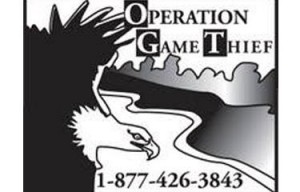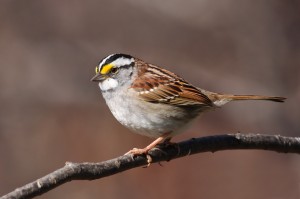WITNESSES OF WILDLIFE-RELATED CRIMES CAN REPORT ANONYMOUSLY
Posted by the Kansas Department of Wildlife, Parks & Tourism on Dec. 4, 2014
One phone call can help catch wildlife thieves
PRATT – Countless wildlife, especially big game, will be illegally killed at the hands of poachers this season and unfortunately, these criminals are tough to catch. Game wardens work tirelessly to track down the men and women allegedly responsible for these crimes, but often a lack of evidence leaves officers with their hands tied. The good news is, one phone call can change this scenario. Operation Game Thief (OGT), 1-877-426-3843, is a program that provides a toll-free line available 24/7, 365 days of the year, for citizens to report wildlife-related violations. All calls received through the OGT line are quickly relayed to the natural resource officer nearest the violation, and callers can remain anonymous.
When reporting a wildlife crime, keep the following in mind:
• never confront suspects; and
• provide as much specific information as possible, such as vehicle model and color, license tag numbers, descriptions of people involved, locations, and the time the incident occurred.
OGT calls have resulted in numerous arrests and convictions on violations ranging from deer poaching to public lands vandalism. In many cases, poachers have been arrested within minutes of the call. If you think picking up the phone can’t make a difference, think again. Those who commit wildlife crimes aren’t just stealing from the land, they are stealing from us all. Help bring them to justice by calling OGT at 1-877-426-3843.


